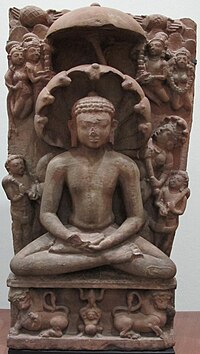**Historical and Cultural Perspectives on Animal Rights:**
– Parshvanatha and Tamil scholar Valluvar promoted ahimsa and moral vegetarianism in ancient times.
– Various cultural traditions and religious teachings, such as Hinduism, Buddhism, Jainism, Islam, and Christianity, have advocated for animal rights.
– Legal scholars have advocated for extending legal rights to non-human animals.
– Ancient texts and religious scriptures acknowledge the souls and rights of animals.
**Philosophical and Legal Approaches to Animal Rights:**
– Martha Nussbaum’s capabilities approach and various philosophical frameworks like utilitarianism, deontology, and egalitarianism have been used to argue for animal rights.
– The capabilities approach focuses on fulfilling animals’ needs, while egalitarianism prioritizes equal distribution of happiness among individuals.
– Legal scholars have proposed extending legal rights to animals based on philosophical principles.
**Utilitarianism and Animal Rights:**
– Utilitarianism, particularly championed by Peter Singer, has played a significant role in advancing the moral status of animals.
– Singer emphasizes equal consideration of interests between humans and nonhumans based on the ability to suffer.
– The majority of researchers now accept that animals suffer and feel pain, influencing the recognition of animal consciousness and suffering.
**Recognition of Animal Suffering and Consciousness:**
– The debate on animal suffering has evolved over time, with a shift towards acknowledging that animals suffer and feel pain.
– Singer’s principle of equal consideration is based on animals’ ability to suffer, not on factors like intelligence or language.
– The recognition of animal consciousness and suffering is not dependent on language but observable behavior.
**Evolution of Animal Rights Advocacy:**
– Animal rights advocacy is growing globally, influenced by ethical theories like utilitarianism.
– Scientists widely accept that animals suffer and feel pain, contributing to the evolution of animal rights recognition.
– There is ongoing debate on the depth of animal suffering compared to humans, with a focus on animals’ capacity to suffer as a basis for equal consideration of interests.
Animal rights is the philosophy according to which many or all sentient animals have moral worth independent of their utility to humans, and that their most basic interests—such as avoiding suffering—should be afforded the same consideration as similar interests of human beings. Broadly speaking, and particularly in popular discourse, the term "animal rights" is often used synonymously with "animal protection" or "animal liberation". More narrowly, "animal rights" refers to the idea that many animals have fundamental rights to be treated with respect as individuals—rights to life, liberty, and freedom from torture that may not be overridden by considerations of aggregate welfare.




Many advocates of animal rights oppose the assignment of moral value and fundamental protections on the basis of species membership alone. They consider this idea, known as speciesism, a prejudice as irrational as any other. They maintain that animals should not be viewed as property or used as food, clothing, entertainment, or beasts of burden merely because they are not human. Multiple cultural traditions around the world such as Jainism, Taoism, Hinduism, Buddhism, Shinto and Animism also espouse forms of animal rights.
In parallel to the debate about moral rights, law schools in North America now often teach animal law, and several legal scholars, such as Steven M. Wise and Gary L. Francione, support the extension of basic legal rights and personhood to non-human animals. The animals most often considered in arguments for personhood are hominids. Some animal-rights academics support this because it would break the species barrier, but others oppose it because it predicates moral value on mental complexity rather than on sentience alone. As of November 2019[update], 29 countries had enacted bans on hominoid experimentation; Argentina has granted captive orangutans basic human rights since 2014.
Outside of primates, animal-rights discussions most often address the status of mammals (compare charismatic megafauna). Other animals (considered less sentient) have gained less attention—insects relatively little (outside Jainism) and animal-like bacteria hardly any. The vast majority of animals have no legally recognised rights.
Critics of animal rights argue that nonhuman animals are unable to enter into a social contract, and thus cannot be possessors of rights, a view summarised by the philosopher Roger Scruton, who writes that only humans have duties, and therefore only humans have rights. Another argument, associated with the utilitarian tradition, maintains that animals may be used as resources so long as there is no unnecessary suffering; animals may have some moral standing, but any interests they have may be overridden in cases of comparatively greater gains to aggregate welfare made possible by their use, though what counts as "necessary" suffering or a legitimate sacrifice of interests can vary considerably. Certain forms of animal-rights activism, such as the destruction of fur farms and of animal laboratories by the Animal Liberation Front, have attracted criticism, including from within the animal-rights movement itself, and prompted the U.S. Congress to enact laws, including the Animal Enterprise Terrorism Act, allowing the prosecution of this sort of activity as terrorism.
